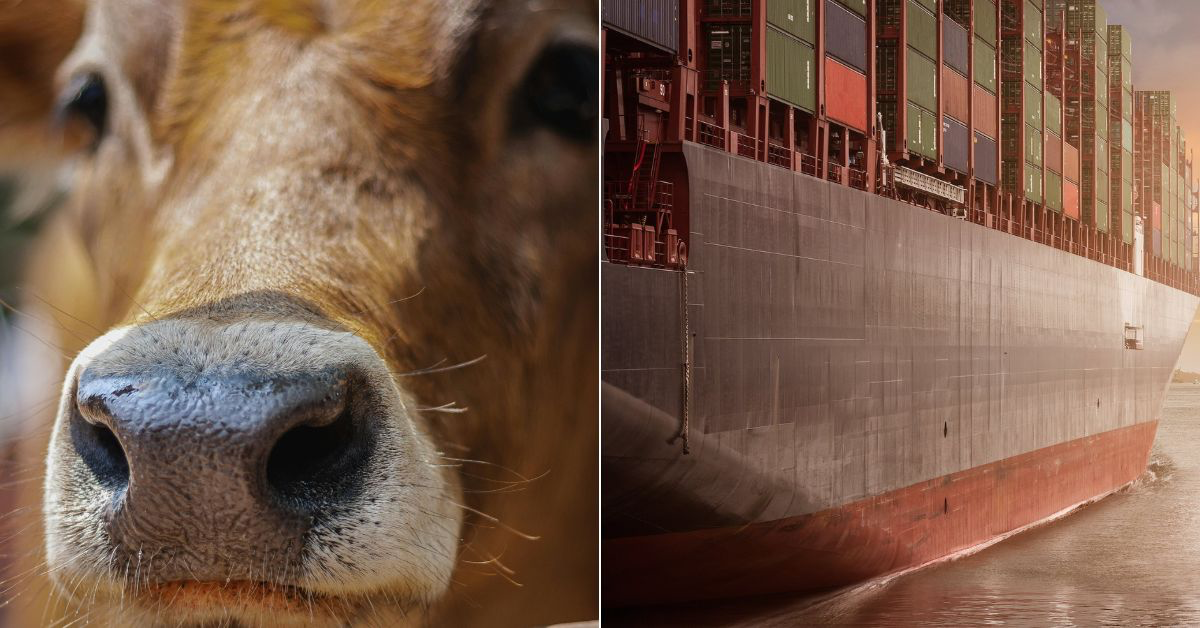The Al Kuwait docked in Cape Town, South Africa, with 19,000 distressed cattle on board sparking outrage from animal rights activists.
Reports from witnesses depict a scene of despair with cattle lying in their own waste, confined in cramped spaces, their eyes reflecting the agony of their journey. This has led activists and citizens to demand an end to live animal exports.
Al Kuwait docks in Cape Town
The arrival of the Al Kuwait has sparked outrage among animal rights activists and concerned citizens. Protests erupted at the Taliep Petersen Bridge as demonstrators voiced their opposition to live animal exports. The stench emanating from the ship permeated through parts of Cape Town. Igniting concern and indignation among bystanders. According to Daily Maverick, the cattle had been at sea for eight days. The conditions the animals have had to endure range from cramped storage to inadequate provisions.
The National Council of SPCA investigates
Grace de Lange from the National Council of SPCAs (NSPCA) described the alarming buildup of faeces within the vessel. She voiced concern that the hygiene situation on board the ship would lead to heightened levels of ammonia. A condition that is detrimental to the respiratory systems and eyes of the cattle. Further inspections revealed deficiencies in medication and care, with some animals needing to be euthanized due to their deteriorating condition.
Activists in South Africa and the world advocate for better conditions
The outcry against live animal export resonates with a growing global movement. Activists argued that such practices inflict unnecessary cruelty on sentient beings. Many are advocating for alternative methods of slaughter in the country of origin. Deidré Daniels from Four Paws emphasizes the need for stricter regulations to prevent overcrowding, injuries, and deaths during transportation.
There is a collective call for action to address the plight of these animals. Beyond the immediate concerns of sanitation and medication lies a deeper ethical question: Are we willing to tolerate the suffering of animals for the sake of profit and convenience?
